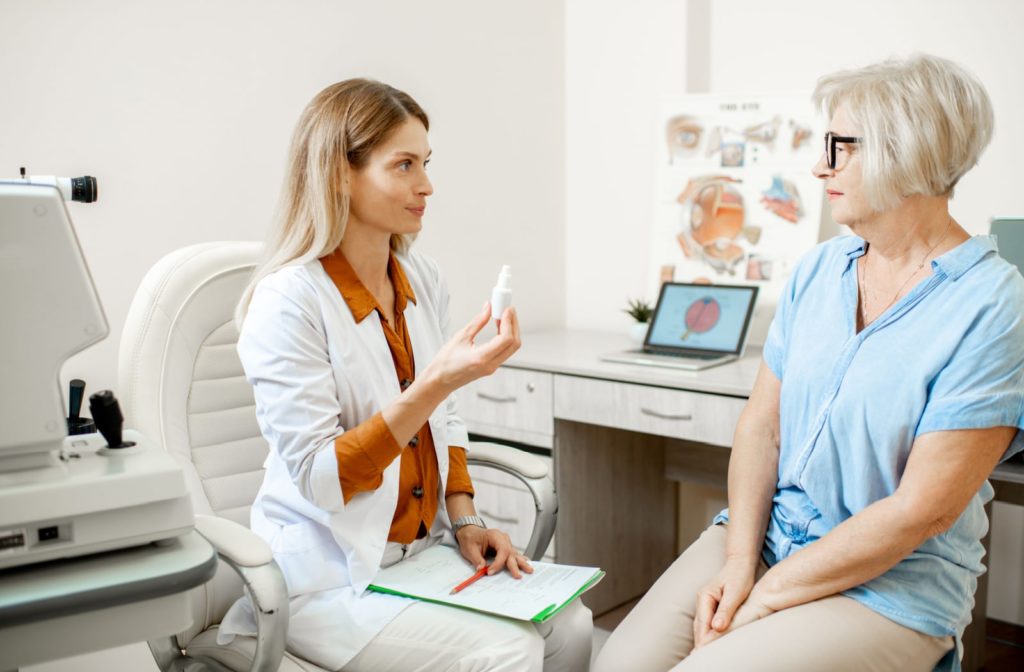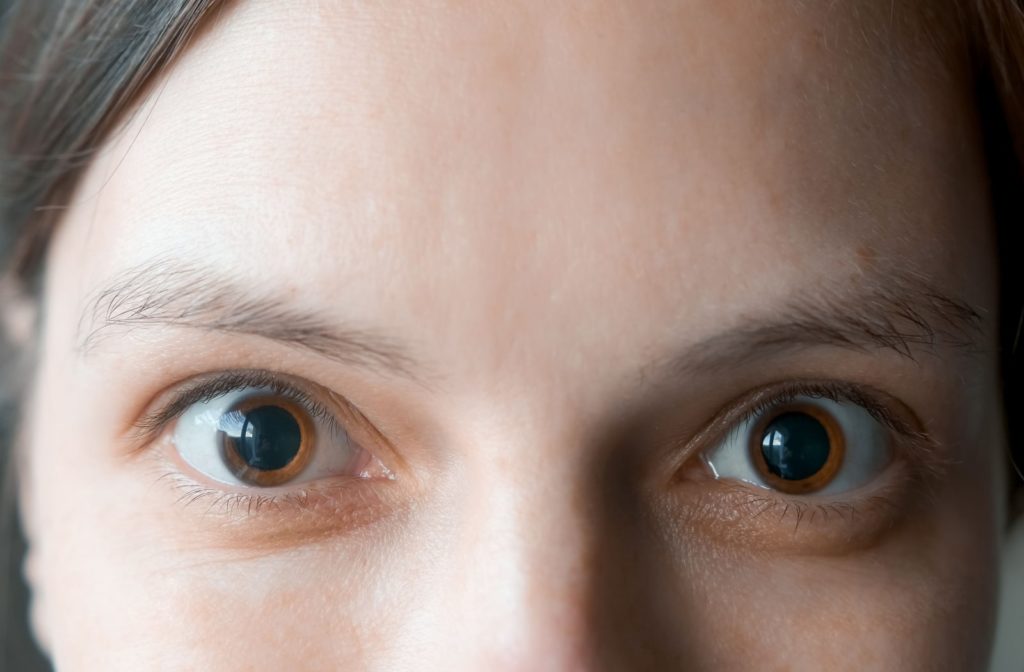Anyone who has been in for an eye exam knows there comes a point where the eye dropper comes out. Your optometrist does this to dilate your eyes, making the pupil (the black part of your eye) as big as it can be. But why do they need to be dilated in the first place?
The answer is simpler than you might expect: to see better. More specifically, so your optometrist can see better. A dilated pupil allows the clearest view into the interior of an eye during an exam, just as it’s easier to open the blinds than peek through the shutters.
Eye dilation might be uncomfortable for some, but it is essential for a comprehensive eye exam.
What Happens When Your Eyes Are Dilated?
Our eyes are delicate machines working in harmony to allow us to see what we need to see. Under normal conditions, our pupils will dilate on their own to let in more light or in response to other stimuli. This function is controlled by muscles within the iris, the colored part of your eye.
During an eye exam, drops are administered that force the pupil to stay open. This allows your doctor to use a magnifying lens to look inside your eye.
The Internal Structure of an Eye
While the front of the eye is protected by the cornea (the clear front surface), there is much more within that you aren’t able to see on your own. Only once your pupil is dilated are we able to get a clear view into the back of your eye. Here you can find the retina, including an important part of it called the macula, and the optic nerve.
Examination of these parts is key in diagnosing various eye conditions, such as glaucoma.
Side Effects of Eye Dilation Drops
While dilation is considered safe, due to the nature of how our eyes function there are some short-term side effects including:
- Blurry vision
- Light sensitivity
- Trouble focusing on close objects
These effects can normally last about 4–6 hours.

The Importance of a Comprehensive Eye Exam
Some eye diseases can occur without any visible symptoms, meaning it is essential to have regular eye exams to catch these signs before it’s too late. In both dilated and undilated exams, your doctor can go through a variety of tests that ensure your eye health is in the best shape it can be.
Visual Acuity
There is a good chance you’ve seen this test be done, either on a family member or in TV and film. In it you’ll read the different letters of the alphabet on a Snellen chart some distance away, testing how clearly each eye can see.
Visual Field Test
One eye at a time, you’ll have your peripheral vision tested, pinpointing areas of vision loss. This could be done manually by your doctor moving their hands in and out of your vision (confrontational test) or using a bowl-shaped instrument that flashes lights in your peripheral vision (automated perimetry test).
Eye Movement
Using an ocular mobility test, the muscles that control eye movement are accessed. This is as simple as following a moving object as your doctor watches for any sign of poor coordination or muscle weakness.
Internal Eye Health
Now come the eye drops. While it is not necessary every time, these dilating drops used with a series of lights and imaging allow a clear evaluation of the retina and optic nerve. You may also have your eye’s internal pressure tested using a tonometer. This is an important test for glaucoma.
How Long Does it Take for Your Eyes to Return to Normal After Dilation?
With your tests done and over with, you might start wondering how long you’ll need to worry about this blurry vision. While it takes between 20–30 minutes for the drops to first take effect, you can expect them to last for several hours.
Just as everyone’s eyes are unique, the way they react to dilation drops is unique too. Yours could wear off faster, or last much longer.
Can You Drive With Dilated Pupils?
Some people who have had dilation in the past feel comfortable driving themselves home after an examination. However, dilation causes blurry vision and light sensitivity. If you’ve never had a dilated eye exam before, we recommend that you ask a friend or family member to drive you to and from the exam. As well, bring a pair of sunglasses to protect your eyes from any glare.
How Often Should You Have a Dilated Eye Exam?
The American Optometric Association recommends a visit to your optometrist at least every 2 years for adults 18–64, while adults 65+ should have an exam annually. However, frequent exams can better keep track of vision health and catch signs of eye disease early. That’s why we at 2020 Eyecare Ohio recommend a visit at least once a year.
If you haven’t had a comprehensive eye exam recently, or have never had one at all, book an appointment today. We’re happy to answer all the questions you may have.



